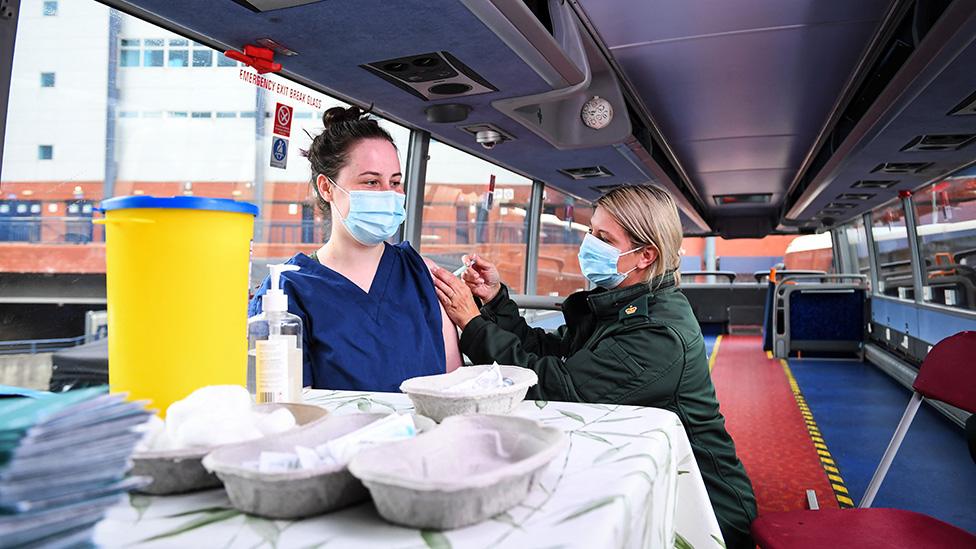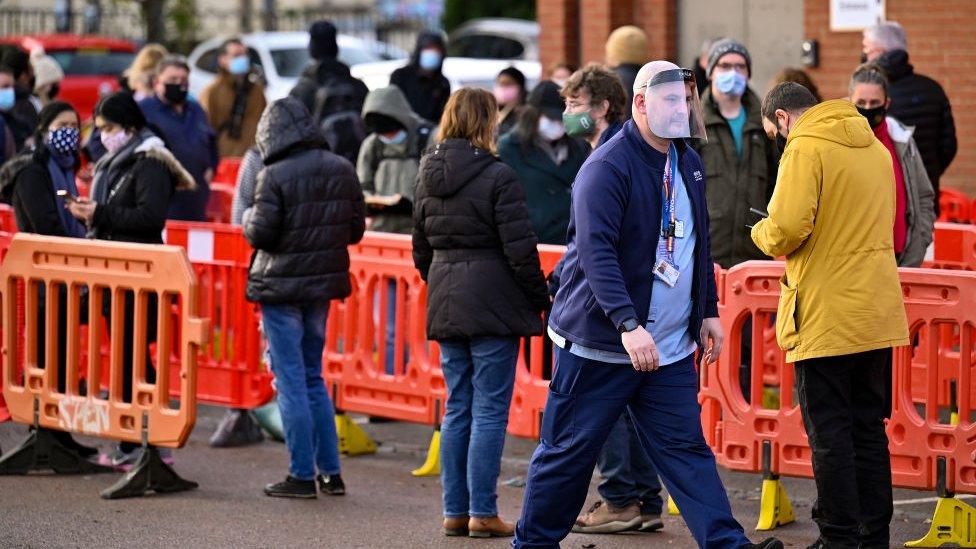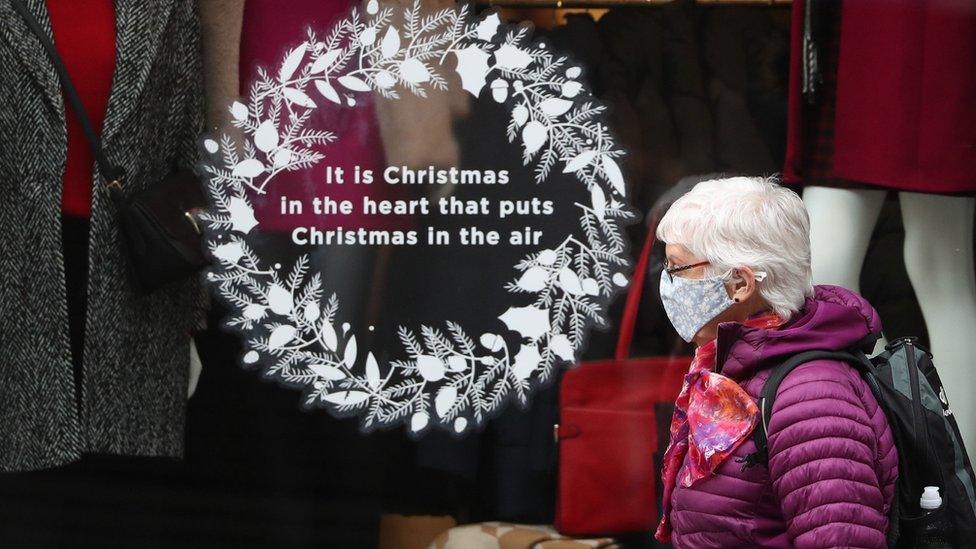Covid in Scotland: Daily booster target revised down by government
- Published

All adults in Scotland are now being offered the booster jab three months after their second dose
The Scottish government has revised its booster target down from 70,000 to 61,000 a day between now and the end of the year.
Health Secretary Humza Yousaf said it would be enough to reach 80% of those eligible for the jab before January.
Scotland broke its booster record on Wednesday with 54,104 jabs given.
A speedy booster programme is considered vital in tackling the threat of the Omicron variant, which is much more infectious than other strains.
A Public Health Scotland report has warned that the "predicted exponential increases" in Omicron cases could put "significant pressure" on hospitals in coming weeks.
Health experts believe the booster shot will offer much better protection from the new strain, which was first detected in Scotland at the end of November.
The programme was extended to all adults in Scotland, with the gap between the second dose and booster reduced to three months, following guidance from the UK government's vaccine advisors, the JCVI.
Speaking on BBC Radio's Good Morning Scotland, Mr Yousaf said: "We've done some revised modelling. To get to the 80% target of those who are eligible for a booster, to do that by the end of the year, we'd actually have to increase the run rate to around about 61,000 - we're not far off that.
"We are working particularly with the likes of [NHS] Greater Glasgow and Clyde, Lothian, Lanarkshire - those big population areas - to see how we we can increase the capacity."

Mr Yousaf said mass vaccination centres would also be set up to increase capacity and told BBC Scotland he was "confident" that the daily number of boosters could be increased to meet the target.
"We're really determined and it's going well," he said.
"We're leading other UK nations - not by a fraction but by quite a distance - so we're making good progress in Scotland, but I need us and I want us, and I will ensure we go even faster than we're going at the moment."
The health secretary also appealed to all eligible adults to book a booster to protect themselves their families and communities.

Can the Scottish government meet its vaccination target?
The health secretary says the aim is to give booster jabs to 80% of eligible adults before the end of December.
To be eligible, it needs to be three months or longer since your second dose and we know from Public Health Scotland data that there will be about 3.8 million adults in this position on 31 December.
So here are the sums: 80% of 3.8 million comes to just over three million, and then we can take off the 2.25 million over-18s already boosted. This leaves just under 820,000 people to be boosted by the end of the year.
As the vaccination figures run a day behind, there are 15 days to go once you've accounted for Christmas Day and Boxing Day - giving 915,000 booster jabs at 61,000 a day.
It sounds a reasonable margin, but keeping jabs at that level for two weeks has never been achieved so far during the vaccination programme.
Add in the usual disruptions of the holiday period combining with a potentially very sharp rise in infections and there's no doubt it will be a big stretch to meet the target.

The Scottish government has confirmed that 100 military personnel will help with the booster programme from next week.
The surge in vaccination comes as the number of daily Covid cases reported by the Scottish government on Wednesday jumped by more than 2,000 cases over the previous day.
There were 4,252 confirmed, probable or possible cases of the Omicron variant in Scotland as of 12 December, a Public Health Scotland report shows, external.
Cases have also now spread to all 14 of Scotland's health board areas.

It is thought that Omicron will replace Delta as the dominant variant in Scotland in the coming weeks.
An increasing proportion of cases with "S-gene dropout" have been detected in Scotland since last month.
The S-gene dropout can be detected by analysing a PCR test and is considered a good indication the case is caused by the new strain.
This characteristic accounted for 0.2% of cases on 27 November, but has now risen to 22.6%.
Total cases have now been rising in Scotland since the end of November after a relatively long period of stability, with particularly sharp increases recorded in recent days.


- Published14 December 2021

- Published15 December 2021
